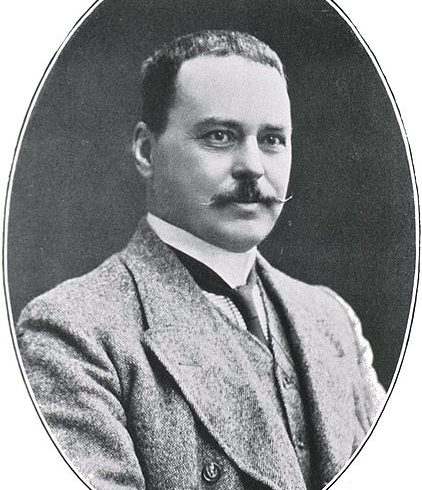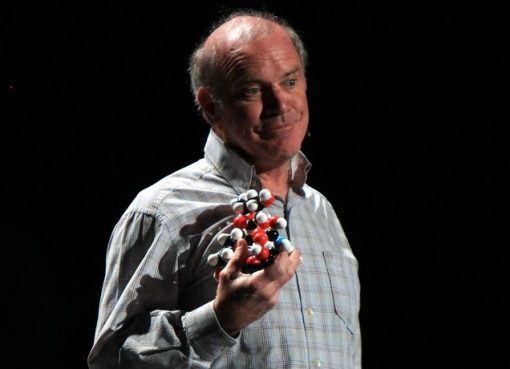This is the story of the Nobel Laurate, Ronald Ross during his research on Malaria. Ronald Ross was an India-born British citizen, who was awarded Nobel Prize for his invaluable contribution in identifying the transmission cycle of the mosquito-borne haemo-protozoan disease, malaria.
Ronald Ross was born in Almora in the present day Uttarakhand in India. His father Campbell Claye Grant Ross was a British Army General in India. He spent his early childhood in India and was sent to England for studies at the age of eight. He was the eldest of the ten children of his parents. In England, he stayed with his aunt and uncle. His primary education started in an English seaside town, Ryde. After completion of primary education in 1869, Ronald was sent to a boarding school in Springhill, near Southampton for secondary education. As a young boy growing in England, Ronald developed his passion for something very different from that is known worldwide. From his childhood days, Ronald liked poetry, mathematics, literature and art. Young Ronald had multiple awards in mathematics and arts to his credit. His childhood dream was to become a writer, but his father had a different plan, and convinced him to register for medical education and this finally landed him at St. Bartholomew’s Hospital Medical College, London in 1874 as an MBBS student. His medical education was completed in the year 1879 and he started working in a trans-Atlantic ship as a chief surgeon. In the year 1881, he cleared in his second attempt “Licenciate of the Society of Apothecaries”, a degree required to be cleared by medical graduates in order to get license to practice medicine in England. This allowed Ronald to join government medical services either in England or then British-ruled India. Ronald Ross decided to join Indian Medical Services after completion of a four months training and he landed in India in September, 1881.
Young doctor Ronald Ross rendered his services in different parts of India, viz. Madras, Burma, Baluchistan, Andaman Islands, Bangalore, Secunderabad, Bombay etc. It was during his posting in Bombay, when he developed interest to work on Malaria, as it was one of the highly prevalent diseases in Bombay at that time. In Bombay Civil Hospital, Ronald Ross used to spend many hours every day to examine blood films of malaria patients under microscope. In May 1985, he could observe early developmental stages of malaria in mosquito stomach. But his work suffered a setback as he was transferred to Bangalore to investigate an outbreak of Cholera and at that time malaria was not a highly prevalent disease in Bangalore. He was upset on being interrupted in his main work but in the month of April the same year, he got a chance to visit visit a malaria-endemic region around Ooty. In Ooty, he could collect some mosquitoes and he called them as “dappled-winged” mosquito, not knowing the species, which was later identified as Anopheles. Meanwhile, he was transferred to Secunderabad. He kept working on malaria in the new place and spent almost 2 years without any success. In 1887, he could culture 20 mosquitoes from the collected larvae. He could successfully infect these mosquitoes with malaria parasite by allowing them to feed on infected patients. For this, he paid 8 annas per mosquito bite to a patient named Husein Khan. He could then detect the malaria parasites inside the dissected mosquito gut on 20th August, 1887. Ronald Ross was so excited with his findings that he wrote a poem on the next day and sent it to his wife. Following are the lines of the untitled poem of Sir Ronald Ross, which I am quoting from Wikipedia-
This day relenting God
Hath placed within my hand
A wondrous thing; and God
Be praised. At His command,
Seeking His secret deeds
With tears and toiling breath,
I find thy cunning seeds,
O million-murdering Death.
I know this little thing
A myriad men will save.
O Death, where is thy sting?
Thy victory, O Grave?
The study was published in 18 December, 1897 issue of the British Medical Journal. Ross continued to work on malaria and kala azar, another haemo-protozoan disease prevalent in India and England holding different positions. For his contributions in discovering the transmission of malaria by mosquitoes, he was awarded Nobel Prize in Physiology and Medicine in the year 1902. In 1926, he became the Director-in-Chief of the Ross Institute and Hospital for Tropical Diseases, which was established in honour of his works. He remained there until his death.




